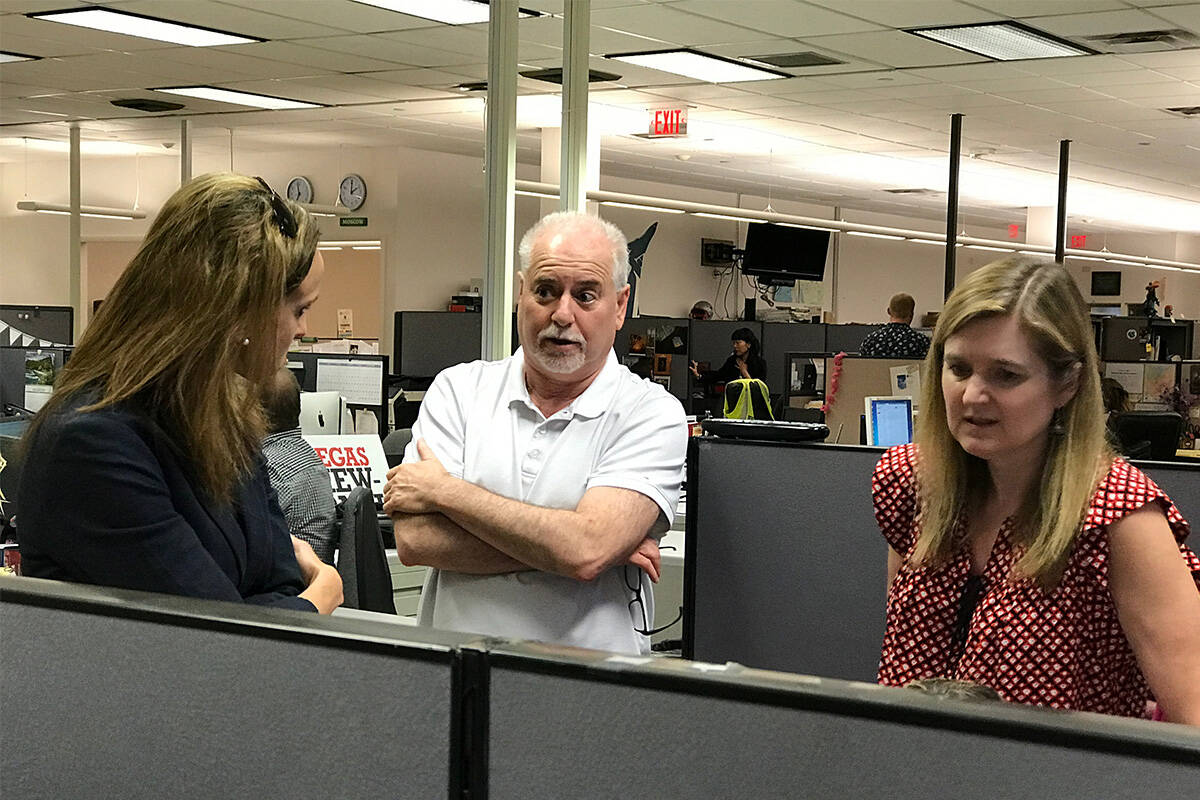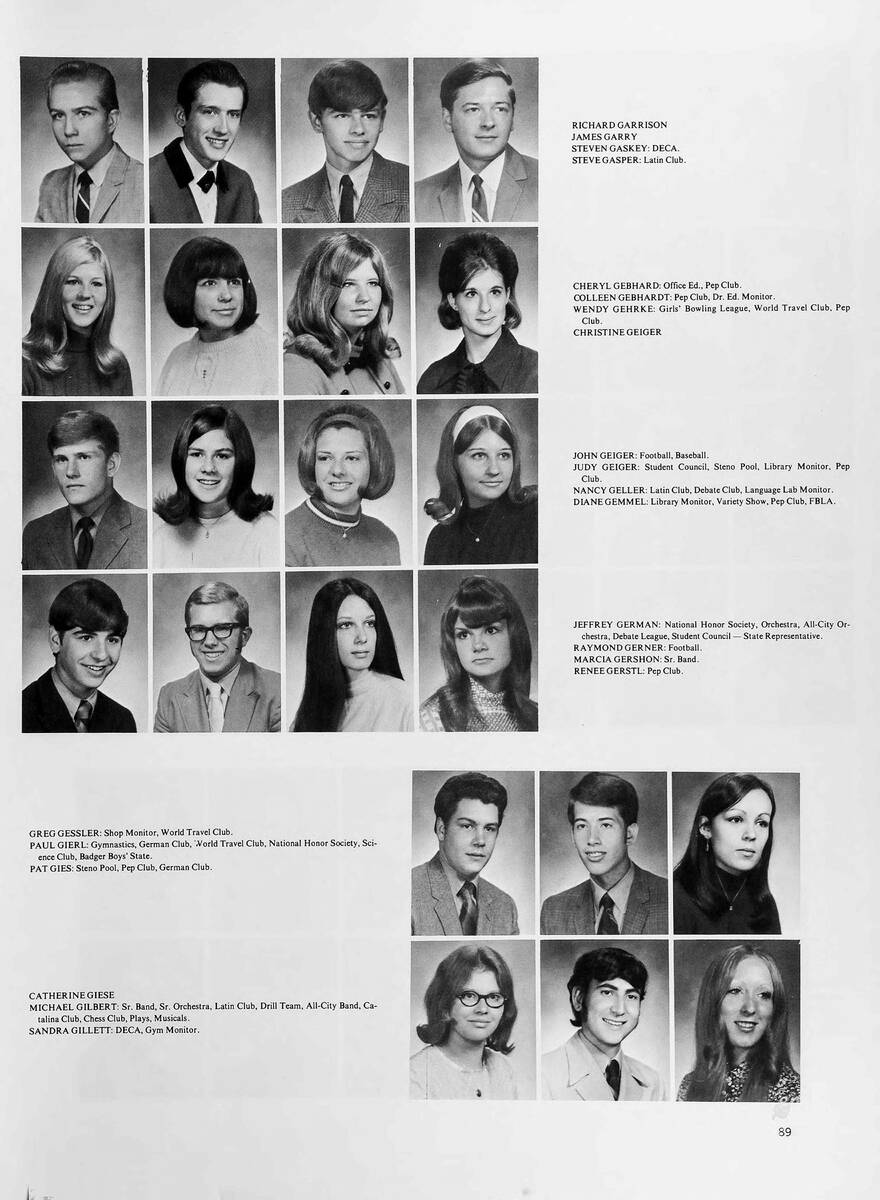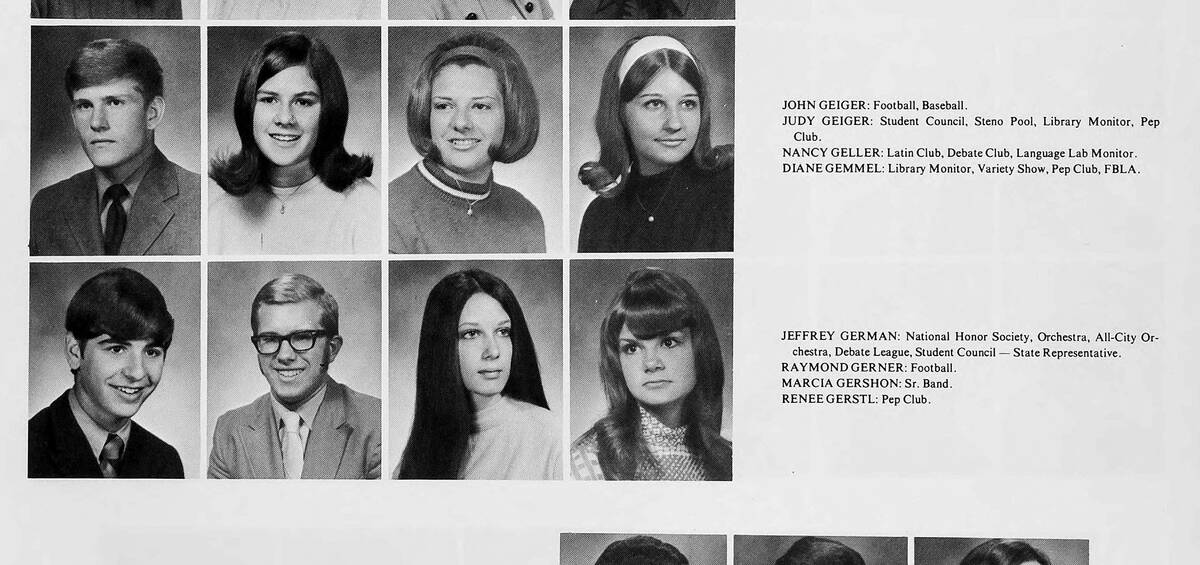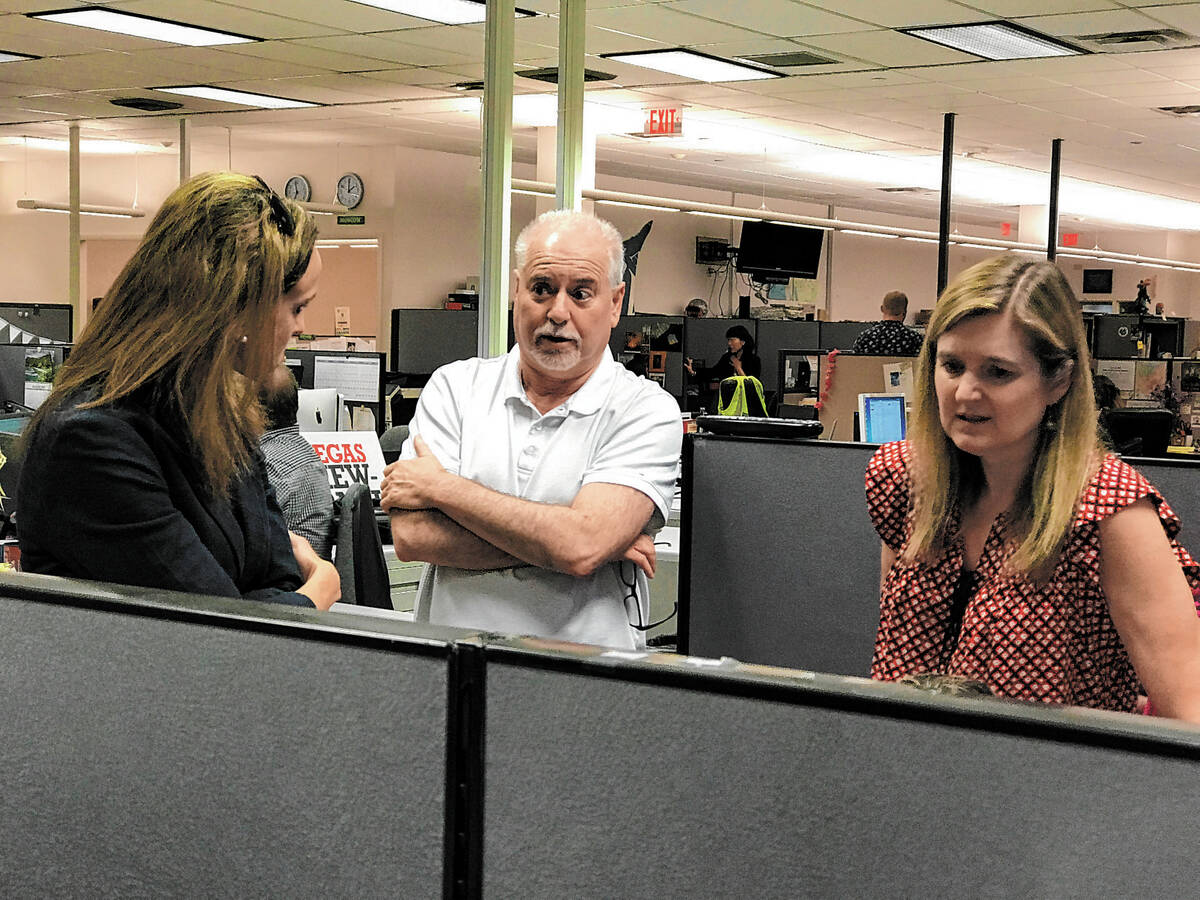Slain reporter no stranger to violence
Editor’s note: The following is an excerpt from the book “The Last Story: The Murder of an Investigative Journalist in Las Vegas,” by Review-Journal Investigations Editor Arthur Kane. The murder trial of Robert Telles, who is accused of killing Review-Journal reporter Jeff German in September 2022, is scheduled to begin Monday.
Early in his Vegas career, Jeff German got on a story about court officer Seymour Freedman collecting debts for loan shark Jasper Speciale at the same time as he collected campaign contributions for the sheriff. Freedman was also collecting a paycheck from taxpayers for his court job. The storyline was, not surprisingly, unpopular with Freedman.
After the columns, German’s car window was smashed and air let out of the tires. He also received threatening anonymous phone calls, warning him to be careful about who he was writing about.
One evening in the fall of 1985, German was drinking at a retirement party at the Sands Hotel for Justice Court Chief Clerk Eileen Carson.
German noticed Freedman, a former New York cop and boxer, at the event and confronted him about the threats and damage to his vehicle. German always prized the cars he drove, favoring upscale Volkswagen sedans and owning a black Mustang in the late 1980s. An attack on his always well-maintained vehicle was like an assault on his person.
“Sy, when are you going to call off the dogs?” German demanded.
Freedman didn’t blink. He threw the drink he was holding in his right hand right in German’s face. With his left hand, Freedman sucker punched German.
A ring Freedman was wearing slashed German’s lip.
After the assault, Metro Police Sergeant David Groover came to take a report at the hospital from German.
Groover had been a target of German’s reporting for a high-profile incident that dominated the local news and was even portrayed in “Casino” with some artistic license.
On the evening of June 9, 1980, Groover, an intelligence detective at the time, and Sergeant Gene Smith were staking out the Upper Crust Mob-run pizza joint. Anthony “The Ant” Spilotro and Frank Cullotta were sitting outside the pizza joint talking when a Lincoln driven by Frank Bluestein pulled up.
Bluestein went in, ordered food, and joined the pair of mobsters outside while his dinner was being prepared. He chatted with the mobsters until it was time to grab his food.
Groover and Smith watched the exchange. Bluestein then took off at high speed, and Groover and Smith pursued him to determine who was associating with Spilotro. The undercover car pulled over Bluestein for traffic infractions, and he exited the Lincoln gun in hand. The undercover officers shot him.
In “Casino,” the portrayal of the incident shows Bluestein only had a hoagie wrapped in foil instead of a gun. Then the movie officers planted a gun to justify the shooting.
In real life, Oscar Goodman called the shooting a police execution, and German reported those allegations regularly.
But at the coroner’s inquest, Groover presented evidence that showed the gun was bought in Chicago by Bluestein’s brother so it couldn’t have been a plant. It was ruled a clean shoot.
Despite that evidence, Bluestein’s family sued, but the officers prevailed. The controversy only ended when the U.S. Supreme Court denied hearing an appeal in the civil lawsuit.
Groover and Smith had bigger things to fear than civil lawsuits. Authorities in Chicago notified Metro that the Mob had put out a contract on them over the Bluestein shooting.
Police wanted a wiretap on Bluestein’s father, but Clark County District Attorney Bob Miller didn’t like wiretaps.
Metro Intelligence Commander Kent Clifford, as he told a Las Vegas author before his death, got into an argument with Miller about associating with a person connected to the casino skim for the Mob. There was bad blood when Miller’s office went to a judge for the wiretap.
On the second day of the tap, the judge told police someone in the DA’s office tried to get the wiretap closed down, but the judge refused.
When that failed, German received a tip about the wiretap, writing a front-page story in the Sun on August 21, 1981, titled “Purported Kill Plot Led to Bluestein Wiretap.”
The phones went quiet. Metro wasn’t happy. Miller, who would later be elected Nevada governor, contends he doesn’t remember giving German a story on the wiretap, though he had “an off-again, on-again” relationship with German.
Miller contends his only association with the Mob was his father’s business partner who went to prison for skimming from casinos. As DA, Miller thought wiretaps should be used sparingly since they were an invasion of privacy.
He conceded he did not have a good relationship with the sheriff at the time and supported his opponent in the next election.
Breaking the story of the wiretap put German into the hot seat. Clifford called German into his office on August 25, 1981, read German his Miranda rights against self-incrimination and then grilled German on his sources for the wiretap story.
Clifford told German he wasn’t a target of the investigation but his cooperation was necessary to determine if someone broke the wiretap disclosure law, which was a felony punishable by up to six years in prison.
German and his bosses refused to reveal the source of the story, citing the state’s reporter shield law.
Protecting sources was one of the bedrocks of journalism and one that German took very seriously. German had previously been subpoenaed by lawyers for Spilotro.
U.S. District Judge Harry E. Claiborne quashed those subpoenas, citing the Nevada Shield Law and the First Amendment.
The issue was so important to Nevada journalists that there would be a fight about German’s sources that went to the state Supreme Court even after his 2022 death. The paper prevailed, further strengthening the shield law.
When Groover arrived at the hospital to take a report from German over the Freedman assault, German was crestfallen.
“I can’t catch a break,” German told Groover.
The reporter complained that not only was he punched in the face but now the officer investigating the incident had it out for him. German decided not to press charges in the case, and Groover thought it was because he was getting a lot of favorable publicity over the sucker punch.
German, who later called the punch a “badge of honor,” didn’t let a little violence stop him from writing about Freedman or the incident.
On September 30, 1985, German’s column on the front page of the Metro section laid out the incident, harping again on Freedman collecting money for the Mob while also collecting campaign funds for the sheriff.
“Mom never told me journalism would be like this,” the tongue-in-cheek column says. It’s “going to take more than a sucker punch to scare me off.”
John L. Smith, then a colleague at the Sun, congratulated German on his column about the incident, saying: “Great story. Somebody should punch you in the mouth every day,” according to a column Smith wrote after German’s death.
The incident became something of a joke around the newsroom as German would detail in an October 2, 1985, column. German quotes city editor Bill Guthrie asking him to contribute to the Sun’s blood drive and then reversing course to say: “Oh, I forgot. You’ve already done that.”
On October 9, 1985, German updated readers that he received an FBI report, apparently leaked to him, while recovering from his encounter with Freedman. The report detailed Freedman’s loan-sharking work for Speciale day by day as it is listed in the document.
That was the typical fearless German.
The book was published by WildBlue Press (wildbluepress.com) in April. wbp.bz/laststory





















